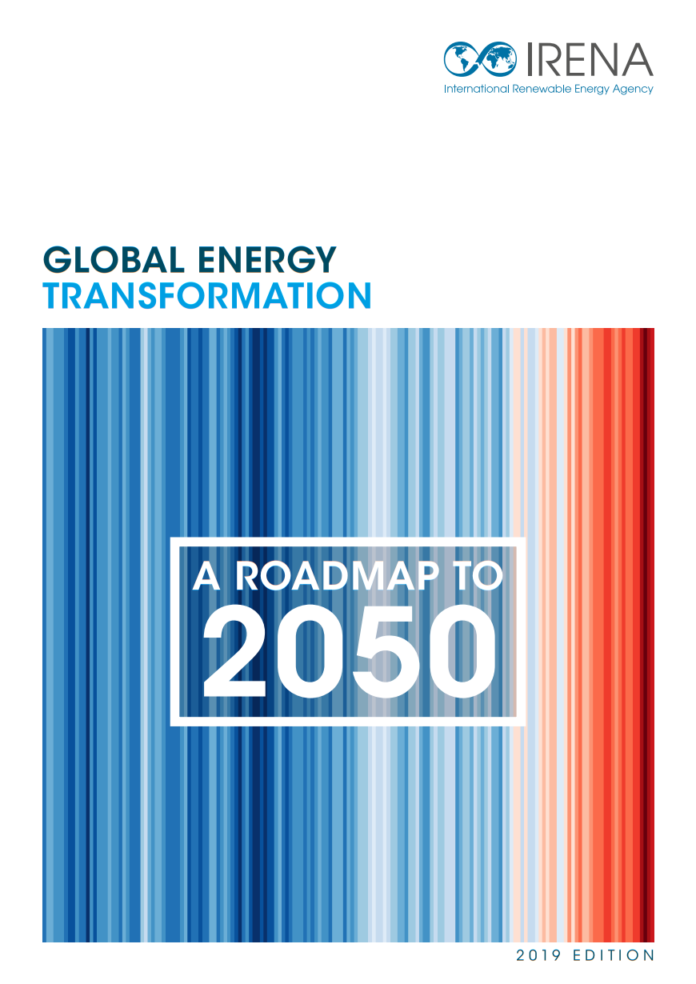
Increased use of renewable energy, combined with intensified electrification, could prove decisive for the world to meet key climate goals by 2050. This study from the International Renewable Energy Agency (IRENA) highlights immediately deployable, cost-effective options for countries to fulfil climate commitments and limit the rise of global temperatures. The envisaged energy transformation would also reduce net costs and bring significant socio-economic benefits, such as increased economic growth, job creation and overall welfare gains. The report – the second under the Global Energy Transformation banner – expands IRENA’s comprehensive roadmap, which examines technology pathways and policy implications to ensure a sustainable energy future. Ramping up electricity to over half of the global energy mix (up from one-fifth currently) in combination with renewables would reduce the use of fossil fuels, responsible for most greenhouse-gas emissions.
See the digital story based on this report on How to Transform Energy System And Reduce Carbon Emissions Renewables already make up more than half of newly installed power-generation capacity. Yet their overall share in the energy mix (including power, heat and transport) needs to grow six times faster, IRENA’s analysis shows. National climate commitments under the Paris Agreement largely hinge on energy decarbonisation. The historic 2015 climate deal, endorsed nearly worldwide, calls for keeping the rise in average global temperatures “well below” two degrees Celsius (2oC) during the present century, compared to pre-industrial levels.
Achieving a climate-safe future, however, depends on swift global action. Current plans and policies, including Nationally Determined Contributions (NDCs), fall far short. Energy-related emissions have risen around 1% yearly since 2015, while the world’s “carbon budget” looks set to run out within a decade. Based on IRENA’s analysis, energy-related carbon-dioxide (CO 2 ) emission reductions would have to decline 70% by 2050, compared to current levels, to meet climate goals. […]
Click here to view original web page at www.irena.org
